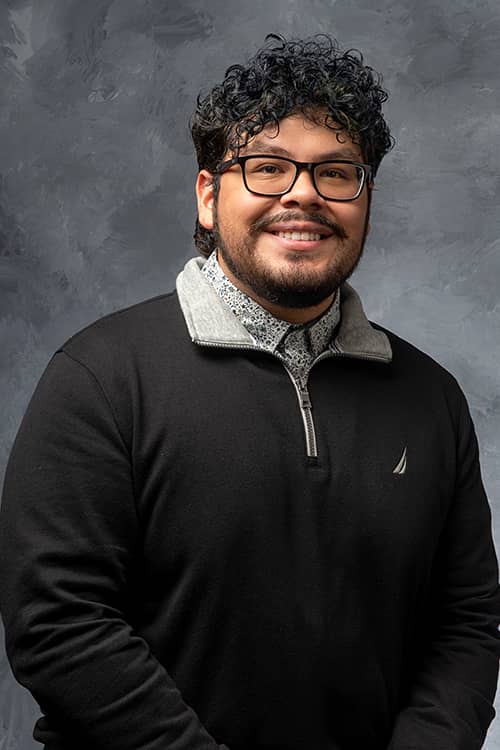
Alfonso Martinez, Ph.D. student, Educational Measurement and Statistics
Detects bias in tests
“Alfonso is investigating methods for detecting bias in multidimensional educational tests. Bias and fairness of tests are concerns in all assessments and his project could provide analysts more tools to ensure tests are unbiased and fair for all.” – Jonathan Templin, Professor and E. F. Lindquist Chair, Department of Psychological and Quantitative Foundations
• Hometown: Firebaugh, CA
• Faculty mentor/advisor: Jonathan Templin, PhD
• What is your degree program and expected graduate date? PhD, Educational Measurement and Statistics (expected 2024)
• Please describe your research: My research work focuses on developing novel methodological approaches for delivering educational and psychological assessments adaptively by combining modern computer technology with contemporary measurement theory. With traditional fixed-length assessments (e.g., paper-and-pencil tests) all individuals receive the same set of items, regardless of their unique characteristics/capabilities. By administering an assessment adaptively, we can learn about the individual in real-time as they interact with and provide responses to the assessment. Importantly, this allows us to reduce testing times and assessment length while simultaneously providing targeted and immediate feedback, improving precision of measurement, and delivering a more reliable, fair, and valid assessment.
• In simple terms, why does this research matter? My work facilitates a tailored approach to testing and assessment. In educational settings, assessments are often utilized to identify areas of deficiency and/or a student’s strengths with respect to some knowledge domain (e.g., math reasoning). My research is important as it enables a customized learning and testing experience by taking into account the student’s personal characteristics. In doing so, we obtain more reliable information about the student in a shorter amount of time. This research also allows us to pinpoint a student’s proficiency levels which can potentially be used to recommend interventions designed to help the student improve or strengthen any areas of deficiency.
• How soon after starting at the University of Iowa were you able to participate in research? I had to opportunity to participate in and contribute to my lab’s research efforts starting my 1st semester in the program and I began working on my own research projects starting my 2nd year.
• How has being involved in research made you more successful at the University of Iowa? Research at the University of Iowa has allowed me to apply concepts, skills, and techniques learned in the classroom to solve pertinent real-world problems. In addition, my involvement in research has provided me with the opportunity to develop skills that go beyond the classroom – collaborating with others, communication of my research with technical and general audiences, critical thinking, problem solving, and scientific creativity.
• What are your career goals and/or plans after graduation? As of right now, I plan to pursue an academic career where I can continue to push the boundaries of educational and psychological measurement.
• Does your research have connections to or implications for COVID-19? One of the advantages of computerized adaptive testing is that assessments can be completed anywhere at any time from a variety of electronic devices (e.g., laptop, tablet, smartphone, etc.). During the COVID-19 era, this has become especially valuable as assessments can be administered without requiring an individual to be physically present in a testing center, for instance. Examining the extent to which assessments remain fair, valid, and reliable under such conditions is an area of research I plan on pursuing in the near future.
Banner location: Downtown—Washington Street
